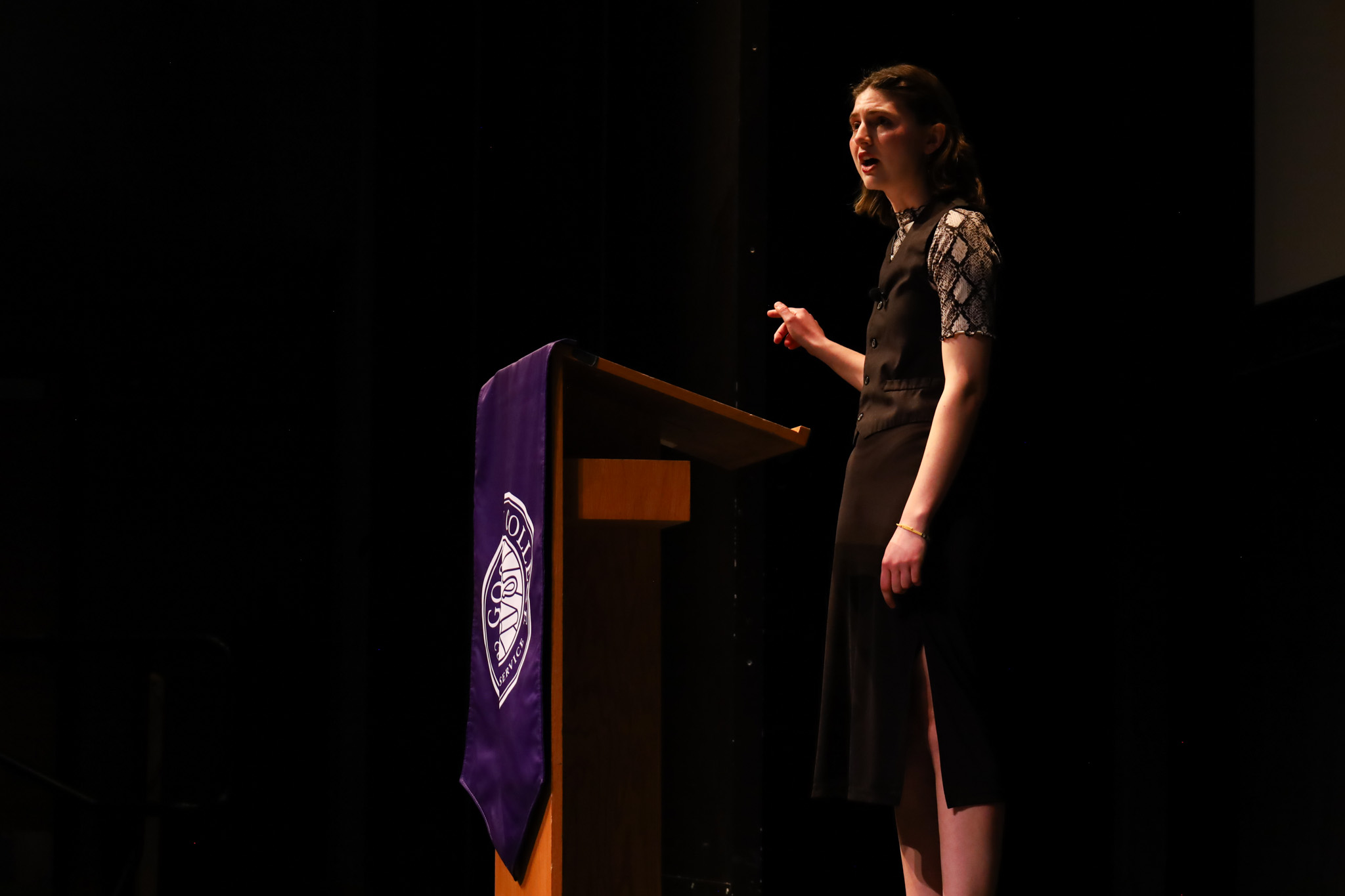Naomi Lapp Klassen won the annual C. Henry Smith Peace Oratorical Contest on Tuesday night, with her speech entitled “Confronting Mass Incarceration: A Story of Agency and Sight.”
The contest was judged by Breanna Nickel, an assistant professor of bible and religion; Richard Aguirre, clerk treasurer for the city of Goshen; and Mark Schloneger, a pastor at Berkey Avenue Mennonite Fellowship.The judges deliberated for 34 minutes, before awarding Lapp Klassen, a senior history and criminal and restorative justice double major, the $500 first place prize.
Peace Muhagachi, a senior sociology major, was awarded second place and a $350 prize for her speech “The Value of Restorative Justice in Our Lives.”
Lapp Klassen said that her inspiration came from a ridealong with a police officer, and her speech presented a detailed account of the experience.
“I think the story that I started with really just helps the speech write itself,” Lapp Klassen said. “That happened two years ago, so I think I’ve been sitting on this for a while.”
In addition to Lapp Klassen and Muhagachi, the contest also featured Kate Bodiker, a junior writing and communication double major; Lindsey Graber, a junior English major; and Alyssa McDonald, a senior broadcasting major.
Initial auditions were in January, with all five students presenting a five-minute version of their speech to a panel of judges, who gave verbal feedback. After that, the contestants received written feedback on their speeches from professors in the communication department, watched videos of past winners and worked with a speech coach.
Additionally, along the way, the contestants named a faculty or staff mentor, who they worked with closely on both the speech itself and the presentation.
“[The speech] went through many renditions,” Lapp Klassen said, “I remember my first draft. I felt so good going in and starting to write it, and then I read it over and I was like, this is terrible — I can’t perform this.”
Schloneger offered a few reasons as to why Lapp Klassen’s speech stood out.
“It felt like she incorporated a personal story with powerful research,” he said. “Then also the way of presentation was very engaging.”
The judges use a rubric with different categories as a way to get a base evaluation for each contestant. It features points such as organization of the speech, evidence, body expressions and how well they adhered to the theme of peace, among others.
Anna Groff, assistant professor of communication and contest director, said that when it comes down to it, the rubric is just a tool.
“They don’t turn [the rubric] in,” Groff said. “I’ve told them, you can have a number that helps you decide the winner … but it’s better for them to decide by consensus.”
For Lapp Klassen, the process of just getting to give the speech was rewarding.
“I was so nervous and anxious going into today and leading up to the performance,” she said, “but getting on stage and just beginning, it was really gratifying because I’d been working on it for so long … it felt like I blacked out a little.”
Though it is a contest, Lapp Klassen praised her competitors.
“They were incredible,” she said. “I said so many times that any one of us could have won. All the things that we touched on were incredibly relevant.
“I think you could combine all of our speeches into a master speech that would be even more powerful.”
Groff noted something similar — a positive atmosphere between the contestants.
“This year when they all arrived [for soundcheck] they started joking around and, like, smelling lip gloss,” Groff said. “Just, being very silly and comfortable with one another.”
Schloneger noted the closeness in quality of all the speeches, saying that the ultimate decision was hard.
“I mean all five of them were just — It was hard to be a judge this year.”



